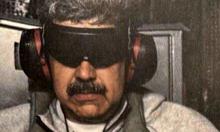Bush to shine spotlight on Sant 'Egidio group¤
U.S. President George W. Bush is going to pay special attention on the Sant'Egidio Community, a lay Roman Catholic organization that for 40 years has been quietly helping the poor, mediating civil wars and fighting the death penalty.
After meeting with Pope Benedict XVI on Saturday, Bush is expected to participate in a round table discussion with members of Sant'Egidio at the U.S. Embassy.
On the surface, a Bush meeting with Sant'Egidio seems implausible. The organization is at the forefront of the international anti-death penalty movement, working city by city to generate support for a worldwide moratorium on capital punishment.
Spokesman Mario Marazziti acknowledged there was an obvious clash of cultures regarding capital punishment. Bush allowed 152 executions while he was governor of Texas, the U.S. state that executes more inmates than any other.
But Marazziti said Saturday's encounter - which the White House requested - should still be constructive. Sant'Egidio's other social justice initiatives - such as running schools for the poor, soup kitchens for the hungry and home visitations for the elderly - are the type of faith-based programs that Bush often embraces.
"We will try not to be naive, to be respectful ... but at the same time sincere, to find all the ways in which poverty can be fought and human dignity can be supported," Marazziti said.
One area where the two find common ground is fighting AIDS in Africa, and that is expected to be a focus of Saturday's discussion, Marazziti said.
Bush recently urged the U.S. Congress to authorize an additional US$30 billion (Ђ22 billion) to fight AIDS in Africa over five years, doubling the current U.S. commitment for the President's Emergency Program for AIDS Relief.
Five years ago, Sant'Egidio launched an AIDS project to provide free antiretroviral treatment for HIV-positive people in Africa - a staggering mission considering that sub-Saharan Africa is home to an estimated 24.7 million people with HIV.
The program, which has an annual budget of US$25 million and is operational in 10 African countries, combines access to free antiretroviral drugs with follow up and home care. It has also created a network of molecular biology laboratories across Africa that are working to ensure that the virus does not become resistant to generic drugs.
Sant'Egidio boasts that of the 1,500 children born to HIV-positive mothers in its program, 98 percent were born without the virus, and that 95 percent of the people on its program adhere to the strict drug regimen.
Sant'Egidio created the DREAM program (Drug Resource Enhancement against AIDS and Malnutrition) because it rejected the notion that prevention programs were the only way to cope with Africa's HIV crisis. Many have argued that treatment programs were too expensive and complicated for Africa's HIV problem.
"We could not accept a genocide," Marazziti said. "We tried to demonstrate that therapy was possible."
The DREAM program first began in Mozambique, where Sant'Egidio had a long history of involvement - including mediating an end to the country's civil war. Sant'Egidio hosted the warring parties at its Rome headquarters over the course of 27 months until a peace agreement was signed in 1992.
The organization's success in Mozambique propelled it into other mediating roles, including in Algeria, Guatemala and the Balkans - work that has earned it multiple Nobel Peace Prize nominations.
Part Catholic charity, part non-governmental organization, part mini-United Nations, Sant'Egidio has some 50,000 volunteer members in 70 countries. Created in 1968, it relies on funding from Italian banks, the World Bank and private and corporate sponsors.
Subscribe to Pravda.Ru Telegram channel, Facebook, RSS!





